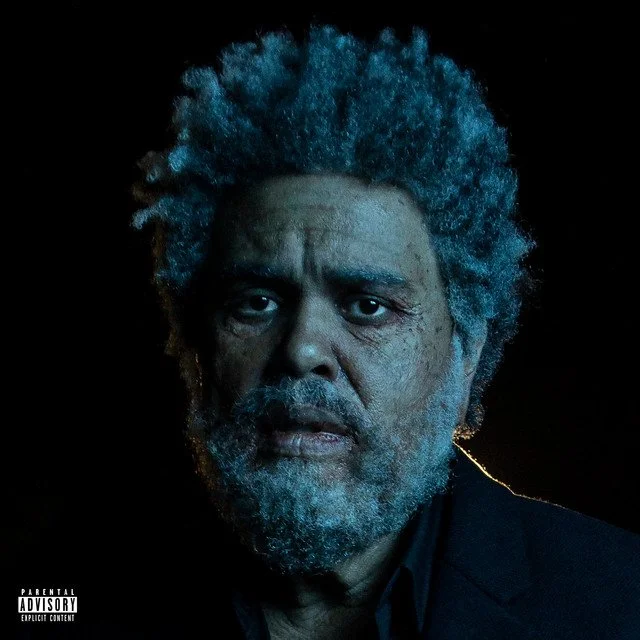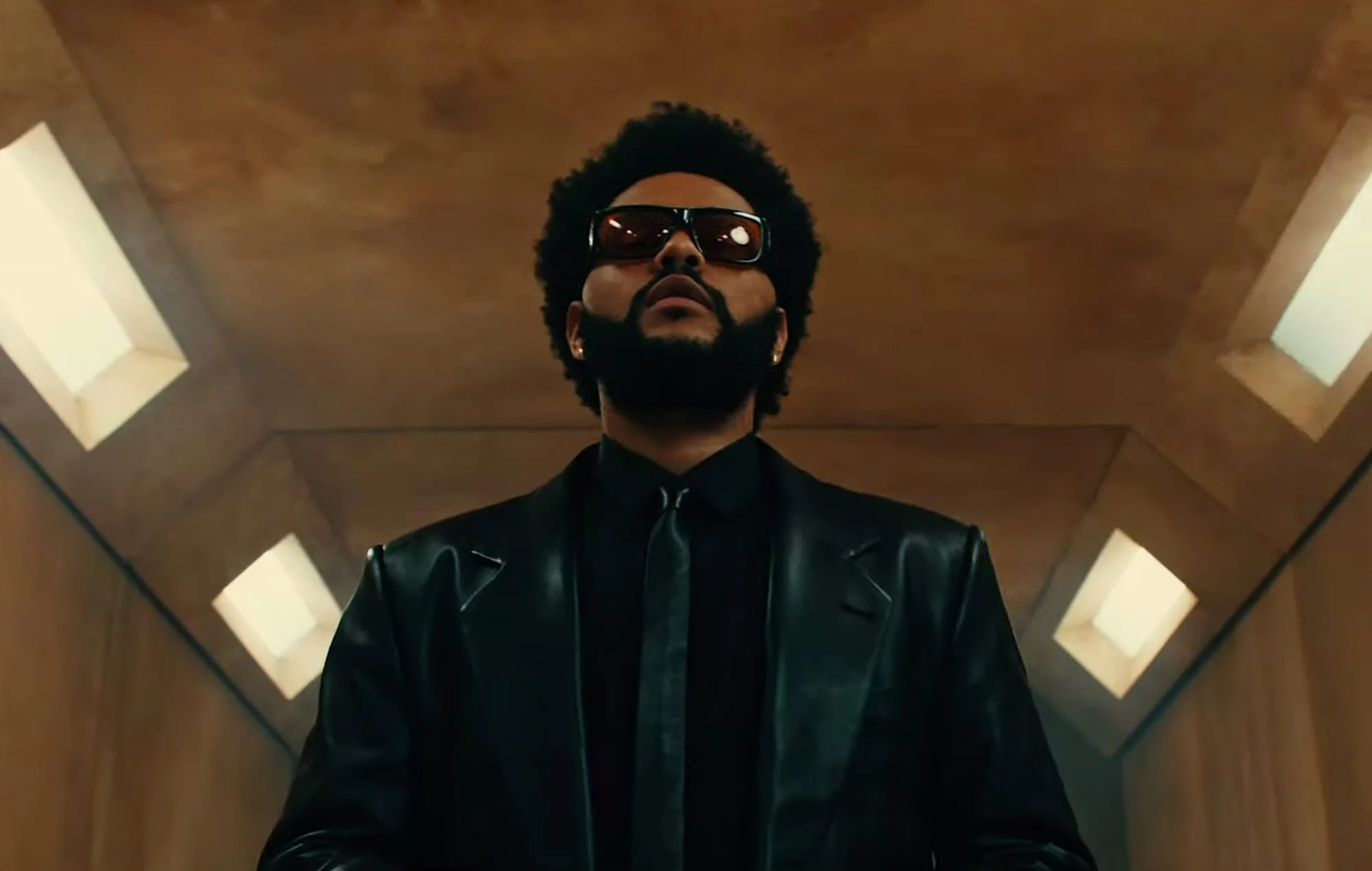Album Review: The Weeknd's Cinematic 'Dawn FM' Is A Towering Achievement
There are few mediums as intrinsic to The Weeknd's brand as radio. Before the Grammys protests and historic streaming success, The Weeknd's sound was decidedly anti-radio. Around six or seven years ago, The Weeknd was an artist that fit right into the gloomy black-and-white melodrama of me and my friends' Tumblr dashboards. You weren't likely to hear an Echoes of Silence cut on Top 40 radio, and that anti-mainstream bent paired well with the distinct angst and insularity of adolescence. But that was a few years ago, and we've all grown and evolved since then.
For The Weeknd, his relationship with radio evolved into one where he and the medium unabashedly embrace one another. "Love Me Harder," "Earned It," "Can't Feel My Face," "The Hills," "Starboy," "I Feel It Coming," "Call Out My Name," "Save Your Tears," the list goes on. And on. And on. In just over a half-decade, The Weeknd has etched his name into the history books as a Top 40 radio juggernaut. An artist who was once upheld as the antithesis of Top 40, is now the format's biggest hero. In line with this evolution, it was only a matter of time before The Weeknd, née Abel Tesfaye, directly addressed his relationship with the medium in his art. Enter Dawn FM. The Weeknd's fifth studio album is his grandest triumph yet. A cinematic odyssey through a funky and forlorn purgatory, Dawn FM finds The Weeknd at his sharpest both conceptually and musically.
Dawn FM arrives as the successor to After Hours, The Weeknd's massively successful and acclaimed fourth studio album which was notoriously snubbed by The Grammys. Prior to the album's release, The Weeknd described Dawn FM as "a radio station playing in the car, with a radio host guiding you to the light and helping you transition to the other side." In his eyes, the radio station is playing for a dead listener making their way through purgatory or getting through "traffic waiting to reach the light at the end of the tunnel." The Weeknd's tenebrous existentialism sets Dawn FM apart from the scores of radio-themed concept albums (Queens of the Stone Age's Songs for the Deaf; Vince Staples's FM!) that precede it. "This part I do alone," The Weeknd croons as an aged-up version of his After Hours protagonist on album opener "Dawn FM." "'Cause after the light, is it dark? Is it dark all alone," he ponders. It's a heady question. Obviously, there's the question of what lies at the end of the purgatorial traffic jam. More interestingly (in my view, at least), however, what's next for Abel post-"Blinding Lights" — the song that recently became the #1 most successful and longest-charting Hot 100 song of all time. Though Dawn FM, The Weeknd explains that the answer to the latter is meaningless without the answer to the former.
Dawn FM's cinematic nature slips references to The Weeknd's past work throughout the album's lyrics. "Gasoline," an instant standout and the album's second track, finds The Weeknd reclaiming his favorite time of the day: the dawn. "It's 5 AM, my time again," he sing-chants over thumping bass and lucid synthesizers courtesy of Max Martin, OPN, Oscar Holter, Matt Cohn, and Abel himself. Immediately, The Weeknd plunges into the depths of his trademark nihilism; it's the beginning of the album's balancing act between atoning for his sins, making peace with himself before he transitions, and giving in to the dangers of love. Dawn FM is fantastically sequenced. "Gasoline" is the perfect song for the beginning of our journey through purgatory.
XO / Republic
The Weeknd has always made cohesive albums, but Dawn FM is the album where he strays from the primary sound the least. He expands the sonic mood of seismic singles like "Blinding Lights" and "Save Your Tears" into a soundscape of post-disco synthpop, vaporwave, and '80s Europop. "How Do I Make You Love Me" continues the album's mind-bending run of standout songs. Here, The Weeknd is blatantly yearning for approval and affection from a person who he knows will never give it to him. The album's lone pre-single, The No. 6-peaking "Take My Breath," appears by way of a masterful transition. The breath play-inspired club anthem is just as arresting as it was upon its initial release, but it feels slightly heavier as the sentiment of death hangs over the album. "Sacrifice," the album's second radio single, follows with a sublime sample of Alicia Myers's "I Want to Thank You" and a killer Michael Jackson homage. The funky electric guitar loop keeps the track anchored, as The Weeknd finds contentment in a decision that's rattled him on previous albums — he's accepted that he doesn't "wanna sacrifice" for love.
Some elements of The Weeknd's early stage shows and his penchant for falsetto-centric vocal performances have drawn comparisons to the great Michael Jackson. The latter half of "Sacrifice" is probably the furthest that The Weeknd has leaned into his MJ homage, so it's only fitting that Quincy Jones — MJ's greatest musical partner and a titan in entertainment — appears on Dawn FM. In "A Tale by Quincy," the legendary producer relays anecdotes concerning his childhood and how it relates to his tenuous relationship with women and his children. Formative experiences influencing troubled relationships with women are a hallmark of The Weeknd's oeuvre. That cyclicity avoids staleness through the use of the radio concept. Elsewhere on the album, there are commercials that serve as interludes, like the stunning "Every Angel Is Terrifying." Featuring a cameo from Uncut Gems collaborator Joshua Safdie, the interlude bottles the anticipation for whatever the "After Life" entails... even if that includes the scary Biblically-accurate depictions of angels.
Dawn FM's strongest moments come when The Weeknd slows down the tempo. "Out Of Time" opts for a sensual '80s groove to provide the framework for The Weeknd to plead for second chances in his sweet falsetto. The woman he wants is already in another relationship, but that won't stop him from professing his love. The situation gets even plainer on the boldly titled "I Heard You're Married," which is reminiscent of Starboy's poppier records despite its not-so-subtle endorsement of homewrecking. The Weeknd is the best of the best when it comes to pairing the most succulent uptempo pop melodies with devastatingly toxic lyrics. On the Tyler, The Creator-assisted "Here We Go... Again," he sings, "Said you wanted your boyfriend jealous with a couple pics / And you didn't expect to fall for me once you got this dick." Dawn FM may have strayed from The Weeknd's alt-R&B bloghouse roots (we get tastes of it on "Starry Eyed"), but the toxicity and guilt that anchored his mixtape days are still out in full force. "Here We Go... Again" balances hearty guitar with a flow reminiscent of "Reminder." It's Tyler's verse, however, that brings the whole thing together; the song is the natural midpoint for his and The Weeknd's sounds. In another example of the album's excellent sequencing, "Best Friend" and "Is There Someone Else" are gorgeous representations of the push and pull of balancing a friendship with a sexual relationship. Guilt, trauma, possessiveness, it doesn't get much better than this. The album's only other featured artist, Lil Wayne, makes an appearance on the aforementioned "I Heard You're Married." His verse is solid, but the real treat is when he starts singing along with The Weeknd on the outro.
Dawn FM's consistency very rarely wavers. Even songs that pack less of a punch in comparison to the rest of the tracklist ("Don't Break My Heart") are still top-shelf material. Moreover, "Less Than Zero," a more-than-worthy sonic successor to "Save Your Tears," is a fitting (full-length) finale to the radio broadcast. The album formally closes with "Phantom Regret by Jim," a poetry reading/spoken word hybrid from Jim Carrey. The Weeknd and Jim Carrey, both Ontario natives, met and formed a friendship over the past few years, and Carrey's personal journey is a heartfelt mirror to the story of Dawn FM. Carrey curbed his depression by eliminating drugs and alcohol from his life and channeling his emotions into his art. "You gotta be Heaven to see Heaven," he muses at the end of the track. If we've spent all of Dawn FM anticipating the end of purgatory to find Heaven, the truth is that the Heaven we've been searching for already exists within ourselves. Until we figure that out on an individual level, the pain and regret of this plane of existence will follow us into the next plane. Dawn FM is a towering achievement in a career full of them. The Weeknd has gifted us his most consistent and fully-realized album yet while laying the groundwork for a potential multimedia universe inspired by his After Hours protagonist and 103.5 Dawn FM.
Key Tracks: "Gasoline" | "I Heard You're Married" | "Sacrifice" | "Less Than Zero" | "Here We Go... Again"
Score: 86






The Weeknd & Ariana Grande score a fourth slam dunk with this updated version of his 2016 track.